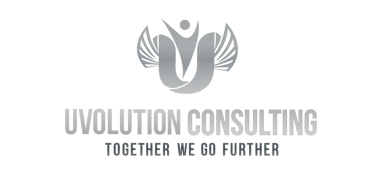The Confidence Crisis No One Talks About in the Age of AI, And What to Do About It
Feeling uncertain about how to stay relevant in the AI era? This blog breaks down why even the smartest professionals are silently losing confidence, and what to do about it.
Omar Berrada
9/22/20256 min read


Something is eroding beneath the surface of high-functioning workplaces, and it isn’t productivity. It’s confidence.
Not overt insecurity. Not resistance to technology. But a quieter disruption playing out inside the minds of ambitious professionals: “Where do I fit now?”
AI is accelerating. Tools that once felt optional are suddenly everywhere. Conversations are shifting from what you know to what you can’t automate.
And for the professionals who built their careers on clarity, capability, and control, there’s an unfamiliar tension:
What made you valuable for years may no longer make you visible.
This Isn’t a Tech Problem. It’s an Identity Shift.
The real disruption isn’t the software. It’s the psychological dislocation caused when your value no longer maps cleanly to your contribution.
This is what I’ve seen consistently over the last 18 months speaking to dozens of senior executives, mid-level managers, and rising strategists: People aren’t paralyzed because of laziness or fear, they’re disoriented because the frameworks they used to define their professional edge are no longer reliable.
What used to signal competence, speed, accuracy, and structure, is now replicable by anyone with a ChatGPT window open.
And in that vacuum, many are asking quietly: “If AI can do this... what am I actually bringing to the table?”
The World Economic Forum Calls It a 44% Skill Disruption
According to the WEF 2025 Future of Jobs Report, 44% of worker skills will be disrupted by 2027.
But skill disruption is only half the equation. The other half is psychological.
This shift isn’t just horizontal as job roles are being reorganized. It’s vertical. The entire definition of value is being restructured.
What will be rewarded is not just output. It’s judgment, presence, adaptability, and leadership under ambiguity.
This is no longer a world optimized for passive expertise. This is a world that rewards the rare capacity to navigate complexity with conviction, and remain human while doing it.
Why Even High Performers Stall During the AI Shift
Here’s the pattern I see in even the highest performers:
They’re aware of the shift
They understand the tools
But they don’t have a structure for action
And when you don’t have structure, you default to avoidance or overconsumption. You scroll tutorials, watch webinars, and convince yourself you’re learning, while the discomfort compounds.
This is what I call performance paralysis through unstructured adaptation.
It is in fact not a lack of skill. It’s a lack of directional confidence.
The Reframe: You’re Not Behind. You’re Unstructured.
Let me offer you something more useful than hype.
There is a very clear distinction emerging in the workforce, not between those who can code and those who can’t, but between those who understand their human edge, and those still waiting for a map.
The most relevant professionals in the next 18 months will not be the most technical. They will be the most deliberate, the most adaptive, the most grounded in skills AI can’t simulate.
McKinsey & Company's research shows that while up to 30% of work hours could be automated by 2030, the most critical skills employers will demand are those that machines cannot replicate. These include:
Complex problem-solving
Emotional intelligence
Creative synthesis
Ethical judgment
Influence and trust
Self-led learning under ambiguity
These are not vague soft skills. They are non-automatable assets. And they can be trained with precision, if you approach them as a system, not as traits.
Reclaim Your Edge: A 5-Day Human Skills Challenge
Reclaim the Six Skills AI Can’t Replace, In 20 Minutes a Day.
If you’ve felt a quiet erosion of confidence, more like disorientation than fear, you’re not alone. What once made professionals valuable, promotable, and trusted is now being questioned in the shadow of automation.
But AI doesn’t eliminate human relevance, it simply removes the margin for passivity.
This five-day system is designed to help you start rebuilding your edge, not by learning new tools, but by strengthening the core human-professional capabilities that every credible workforce study, from McKinsey to the World Economic Forum, confirms are becoming more valuable in the AI era.
Each day targets one of the six foundational skills in the Human Edge Matrix. The goal is to shift your experience, not through theory, but through specific, psychologically grounded behaviors you can start practicing right now.
Day 1: Reframe the Real Problem
Skill: Analytical Thinking & Complex Problem Solving
Most people jump into solutions too quickly driven by pressure, deadlines, or the illusion of control. But what actually sets high-level professionals apart is not how fast they respond. It’s how accurately they define what’s worth solving in the first place.
Practice:
Identify a real challenge you’re currently facing such as an interpersonal tension, a stalled project, or a decision point you’ve been avoiding. Then write down three different ways to frame that same issue. For example:
As a leadership opportunity
As a communication breakdown
As a workflow misalignment
Why it matters:
Every frame opens a different path. What looks like procrastination might actually be unprocessed conflict. What seems like confusion could be misaligned incentives. When you slow down your thinking long enough to redefine the problem, you start reclaiming your authority. This is the cognitive rigor that AI cannot replicate.
Day 2: Shift the Context, Free Your Thinking
Skill: Creativity & Original Thinking
AI is a pattern machine. It excels at remixing what already exists. But the most valuable professionals don’t just remix, they originate. They make unexpected connections across disciplines, narratives, and emotional context.
Practice:
Choose a routine task such as an email, report, or proposal you need to write this week. Now reinterpret it through three lenses:
A metaphor
A personal story
A surprising contrast
For example, turn a quarterly update into a metaphor about navigation through fog. Turn a budget review into a story about leverage. Turn a product pitch into a reversal: “what happens if we don’t act?”
Why it matters:
Original thought isn’t about being clever. It’s about expressing layered insight in ways that engage the brain and the nervous system of the person reading or listening. When your message hits multiple registers like logic, emotion, surprise, you don’t just get heard. You get remembered.
Day 3: Regulate Before You Respond
Skill: Emotional Intelligence
In high-stakes environments, the nervous system often takes over before the mind can think. That’s why emotional regulation, especially in conversation, is such a powerful differentiator.
Practice:
In your next emotionally charged interaction whether in a meeting, message, or spontaneous conversation, pause for three seconds before responding. Silently name what you’re feeling. Then respond only once you’ve made contact with that emotion.
Why it matters:
This brief pause interrupts reactivity. It gives your prefrontal cortex time to engage, instead of defaulting to conditioned responses. Over time, this habit changes how others perceive you. You become the person who doesn’t escalate tension, who can hold discomfort without flinching, and who others instinctively trust with nuance and complexity. That’s emotional authority, not performance.
Day 4: Anchor Your Presence Through Language
Skill: Influence, Presence & Mentorship
AI can automate instructions. But it cannot earn trust, regulate energy in a room, or guide others through ambiguity. Those are distinctly human privileges, earned through presence.
Practice:
In your next conversation or meeting, listen closely to the language others use. Then intentionally mirror tone and elevate clarity using anchored phrases, statements that simplify, unify, or redirect the room. Think: “Here’s what I’m hearing beneath that,” or “What matters most here is…”
Why it matters:
The most respected professionals shape culture not through dominance, but through linguistic clarity. People begin to mirror those who reflect stability. If your phrasing becomes the reference point in a room, your leadership is already at work, before any title grants it.
Day 5: Audit the Version of You That’s Showing Up
Skill: Adaptability & Ethical Judgment
Adaptability isn’t a buzzword. It’s the executive skill of choice in uncertainty: staying aligned with values while recalibrating execution under pressure.
Practice:
Look back over the past three days. Where did you react instead of choose? Where did you show up aligned, and where did you regress into habit? In your journal or voice note, answer this: “Am I proud of the version of myself that showed up this week? If not, what needs to be designed differently?”
Why it matters:
This audit separates high-performance from mere productivity. When you begin treating your identity as something you design, not defend, you stop fearing change. You start directing it.
Next Step: Turn Insight Into Momentum
You haven’t fallen behind. You’ve simply been operating without a structure built for this new level of change.
And if this five-day accelerator already shifted something for you on how you think, how you lead, or how you feel about your place in the future then know this:
The full system is already waiting for you:
📘 Download the free ebook: How to Stay Relevant When AI Is Changing Everything
Inside, you’ll find:
The 6 Human Edge Skills AI cannot replicate, and why they matter now more than ever
The Self-Assessment to diagnose your current readiness in this AI-induced workforce shift
The AI Confidence Challenge to help you explore tools without outsourcing your thinking
And a structured roadmap to rewire your career with clarity, identity, and high-impact performance.
This isn’t about catching up, it’s about building the version of you the future will require.
Let’s do it together because together we always go further.
Contact:


